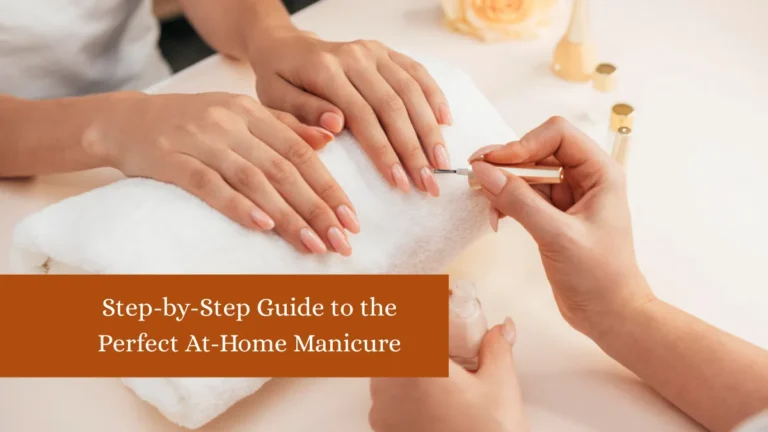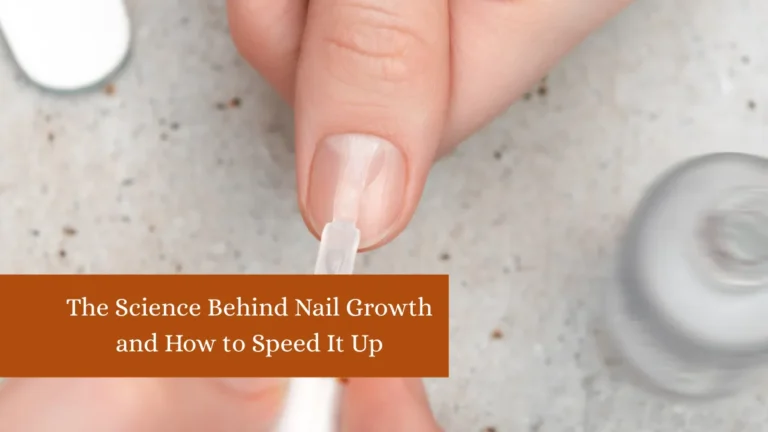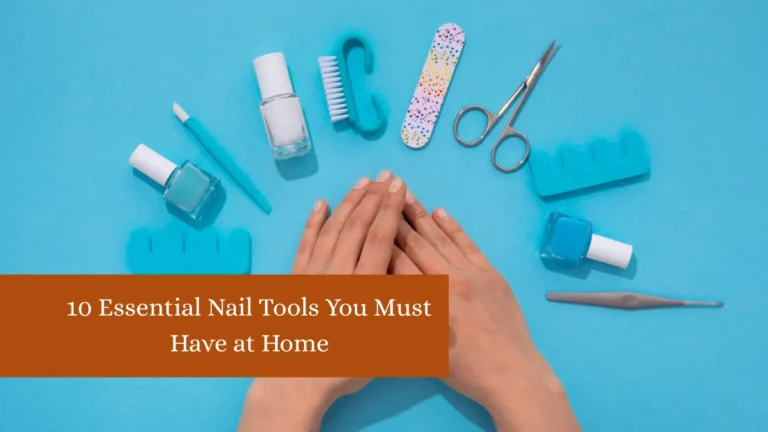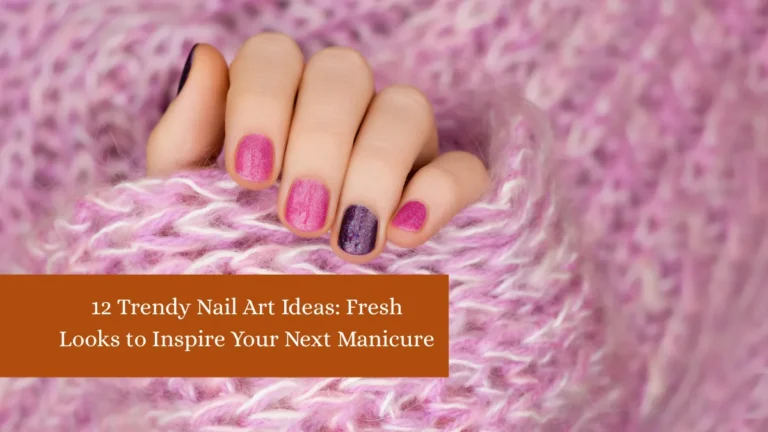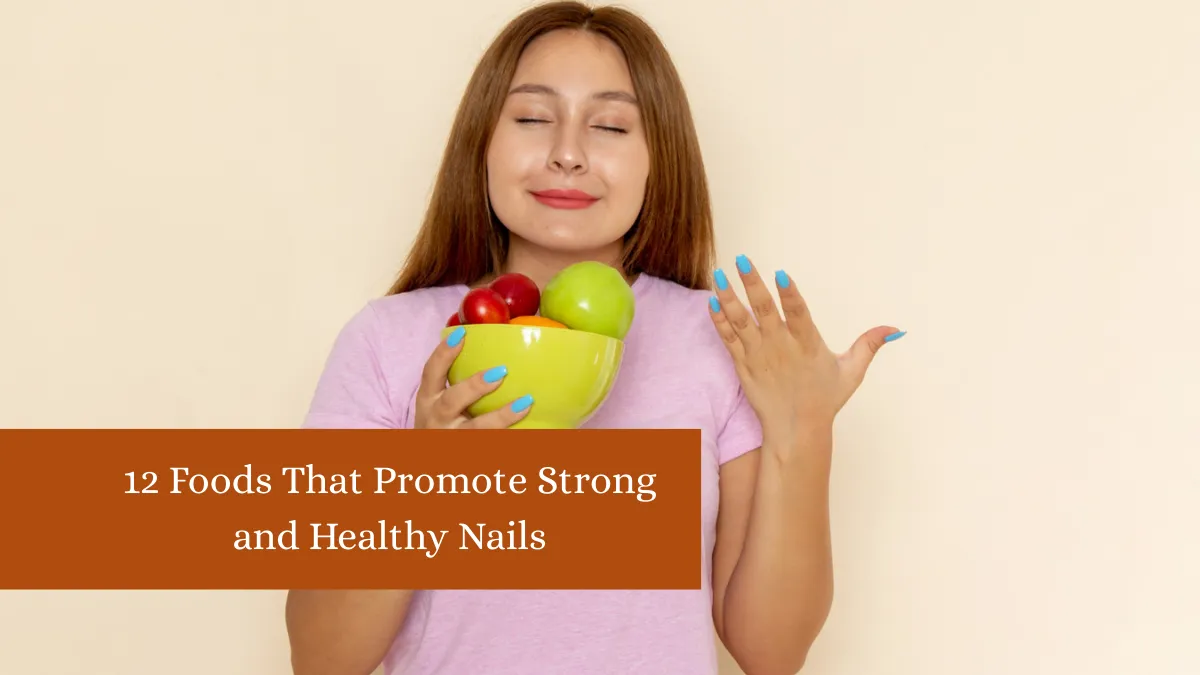Our nails are more than just a beauty accessory—they are a reflection of our overall health. Weak, brittle, or slow-growing nails can often indicate nutrient deficiencies, dehydration, or underlying health issues. While external care like moisturizing and proper trimming is important, what you eat plays an even bigger role in determining nail strength and growth. Nails are primarily made of keratin, a protein that requires adequate vitamins, minerals, and amino acids to form properly.
A diet rich in nail-friendly nutrients can help improve thickness, prevent brittleness, and encourage faster growth. By incorporating specific foods into your daily meals, you’re essentially fueling your nail matrix with the building blocks it needs to produce strong and healthy nails. In this guide, we’ll explore 12 nutrient-rich foods that are scientifically proven to support nail health, explain why they work, and share tips on how to incorporate them into your diet for maximum benefit.
1. Eggs – A Protein and Biotin Powerhouse
Eggs are one of the best foods for promoting strong and healthy nails because they contain two essential components: protein and biotin. Protein is crucial for keratin production, which makes up the structure of your nails. Without enough protein, nails can become weak, soft, and prone to breakage. Biotin, also known as vitamin B7, is especially important for nail health—it helps strengthen brittle nails and encourages faster growth.
Studies have shown that biotin supplementation can increase nail thickness and reduce splitting within a few months. Eggs are also rich in other nail-friendly nutrients like vitamin D, selenium, and zinc, which all support healthy nail formation. For best results, include both the yolk and the white in your meals, as the yolk contains most of the biotin. You can enjoy eggs boiled, scrambled, poached, or even in omelets with vegetables for an extra nutrient boost. Just one to two eggs daily can significantly contribute to nail strength over time.
2. Salmon – Rich in Omega-3 Fatty Acids and Protein
Salmon is a nutritional powerhouse for nail health, thanks to its high content of omega-3 fatty acids and high-quality protein. Omega-3s are essential for keeping your nails hydrated and flexible by nourishing the nail bed and reducing inflammation that could hinder growth. Dry, brittle nails are often a sign of omega-3 deficiency. Protein in salmon supports keratin production, while vitamins like B12 and D, along with minerals such as selenium, help maintain nail thickness and prevent ridges.
Regular consumption of salmon can also improve blood circulation, ensuring your nails get the oxygen and nutrients they need for healthy growth. Wild-caught salmon is preferred for its higher nutrient content and lower risk of contaminants. Aim to include salmon in your diet at least twice a week—grilled, baked, or poached for maximum benefits. If you don’t eat fish, plant-based omega-3 sources like chia seeds or flaxseeds can offer similar nail health benefits.
3. Almonds – A Source of Magnesium and Vitamin E
Almonds are a delicious and convenient snack that delivers two powerful nail-boosting nutrients: magnesium and vitamin E. Magnesium plays a key role in protein synthesis, which is essential for nail growth and strength. A magnesium deficiency can lead to vertical ridges on the nails and slow growth. Vitamin E, on the other hand, is a potent antioxidant that helps protect nails from oxidative stress and damage caused by free radicals.
It also supports healthy circulation, ensuring that the nail matrix receives an adequate supply of nutrients. Almonds are also rich in plant-based protein and healthy fats, both of which contribute to nail flexibility and moisture retention. A small handful of almonds daily can help reduce brittleness and improve nail texture. For added variety, you can use almond butter in smoothies, sprinkle chopped almonds over salads, or use almond flour in baking. Always opt for raw or lightly roasted almonds to preserve their nutrient content.
4. Spinach – Packed with Iron and Folate
Spinach is a green leafy vegetable that offers a powerhouse of nutrients for nail health, including iron, folate, and vitamin C. Iron is critical for transporting oxygen to the nail matrix, where nail cells are produced. Without enough iron, nails may become thin, pale, and brittle—a condition known as iron deficiency anemia. Folate (vitamin B9) supports DNA synthesis and cell division, essential for healthy nail growth. Vitamin C in spinach helps the body absorb iron more efficiently and supports collagen production, which strengthens the nail structure.
Spinach also contains magnesium and plant-based protein, adding further benefits. You can enjoy spinach in salads, smoothies, stir-fries, or sautéed as a side dish. For better iron absorption, pair spinach with vitamin C-rich foods like tomatoes or bell peppers. Regularly including spinach in your diet can result in stronger, more resilient nails and help prevent common nail problems associated with nutrient deficiencies.
5. Sweet Potatoes – Rich in Beta-Carotene
Sweet potatoes are one of the best sources of beta-carotene, a plant pigment that the body converts into vitamin A. Vitamin A is essential for cell growth, including the cells that make up your nails. It also helps the body produce keratin, the protein that forms the structure of your nails. A deficiency in vitamin A can lead to weak, brittle nails that are prone to breaking. Sweet potatoes are also rich in antioxidants, which protect nails from oxidative stress and damage.
Additionally, they provide a good dose of fiber, vitamin C, and potassium, supporting overall health. You can enjoy sweet potatoes roasted, mashed, or baked, and even use them in soups and stews. To enhance beta-carotene absorption, pair them with a small amount of healthy fat, such as olive oil or avocado. Consuming sweet potatoes regularly can help maintain vibrant, strong nails while supporting overall skin and hair health.
6. Lentils – A Plant-Based Protein and Iron Source
Lentils are a nutrient-dense legume that provides plant-based protein, iron, zinc, and biotin—all vital for nail health. Protein is needed to produce keratin, while iron ensures oxygen delivery to the nail matrix for proper cell formation. Zinc helps in cell division and repair, preventing nail deformities and white spots. Lentils are also rich in folate, supporting healthy nail growth at the cellular level.
Biotin in lentils strengthens brittle nails and promotes faster growth. Since lentils are low in fat and high in fiber, they make an excellent choice for a balanced, nutrient-packed meal. You can include them in soups, stews, salads, or even use them in veggie patties. Combining lentils with vitamin C-rich foods like tomatoes or citrus fruits helps improve iron absorption. Regular consumption of lentils can significantly improve nail thickness, texture, and growth rate, especially for those following vegetarian or vegan diets.
7. Sunflower Seeds – A Boost of Vitamin B6 and Vitamin E
Sunflower seeds are a small but mighty snack for nail health. They are rich in vitamin B6 (pyridoxine), which plays a crucial role in protein metabolism, ensuring that your body can effectively use amino acids to produce keratin for strong nails. A deficiency in vitamin B6 can result in nail ridges and poor growth. Sunflower seeds are also an excellent source of vitamin E, a potent antioxidant that protects nails from oxidative stress and environmental damage.
The healthy fats found in sunflower seeds help maintain nail flexibility and prevent brittleness. Additionally, these seeds are loaded with magnesium, copper, and zinc—minerals that aid in nail strength and resilience. You can enjoy sunflower seeds raw, roasted, or sprinkled over salads, yogurt, or smoothie bowls. Just a handful a day is enough to provide significant benefits for your nails while also boosting overall health. For maximum freshness and nutrient retention, store sunflower seeds in an airtight container away from direct sunlight.
8. Avocados – Healthy Fats and Vitamin E for Flexibility
Avocados are a nutrient-dense fruit packed with healthy monounsaturated fats, which are essential for keeping nails hydrated and flexible. Without adequate healthy fats, nails can become dry and prone to breakage. Avocados are also rich in vitamin E, which supports healthy circulation to the nail bed and protects against oxidative stress. This vitamin helps in repairing damage and maintaining a smooth nail surface.
Additionally, avocados contain B vitamins like folate, which aids in cell regeneration and supports the production of healthy nail tissue. Potassium in avocados further contributes to overall hydration, benefiting nails, skin, and hair alike. You can incorporate avocados into your diet through salads, smoothies, toast toppings, or guacamole. To maximize their benefits, pair avocados with other nail-boosting foods like eggs or salmon. Eating avocados regularly can lead to stronger, more flexible nails that resist cracking, while also improving the health of your skin and hair.
9. Oats – A Whole Grain Rich in Zinc and Copper
Oats are more than just a breakfast staple—they are a valuable source of zinc, copper, and manganese, all of which contribute to strong and healthy nails. Zinc is essential for cell growth and repair, ensuring nails grow evenly and without deformities. A lack of zinc can cause white spots or slow nail growth. Copper aids in the production of collagen, which helps maintain nail structure, while manganese supports the formation of connective tissue that anchors the nail securely to the nail bed.
Oats also contain silica, a trace mineral that strengthens nail tissue and prevents brittleness. Eating a bowl of oatmeal topped with nuts, seeds, and fruits is an easy way to boost your nail health. You can also use oats in smoothies, energy bars, and baked goods for variety. Opting for whole rolled oats or steel-cut oats ensures you get the maximum nutrient benefit for your nails and overall health.
10. Greek Yogurt – Protein and Calcium for Nail Strength
Greek yogurt is a protein-packed food that provides the amino acids necessary for keratin production, directly influencing nail strength and growth. It’s also an excellent source of calcium, which supports nail hardness and prevents breakage. In addition, Greek yogurt contains vitamin B12 and riboflavin (B2), both of which promote healthy nail cell formation and protect against brittleness. Probiotics in Greek yogurt contribute to overall wellness by supporting gut health, which indirectly aids nutrient absorption—including the nutrients essential for nail health.
Consuming Greek yogurt as a snack or breakfast option is both convenient and versatile. You can pair it with berries, honey, or nuts for added flavor and extra nutrients. Choosing plain, unsweetened Greek yogurt is best to avoid added sugars, which can promote inflammation and negatively impact nail health. Incorporating Greek yogurt into your diet a few times a week can lead to thicker, more resilient nails over time.
11. Carrots – Beta-Carotene and Biotin Combo
Carrots are an excellent source of beta-carotene, which the body converts into vitamin A—a nutrient essential for cell growth and keratin production. Adequate vitamin A intake ensures that nails grow strong and healthy. Carrots also contain biotin, a B vitamin that reduces brittleness and improves nail thickness. These nutrients work together to prevent breakage and promote faster growth.
Carrots are easy to add to your diet in multiple forms—raw as a snack, shredded into salads, blended into smoothies, or cooked in soups and stir-fries. Roasting carrots with a drizzle of olive oil enhances the absorption of fat-soluble vitamin A. The antioxidants in carrots also protect nails from environmental damage and premature aging. Eating carrots regularly not only benefits your nails but also improves vision, skin health, and immune function, making them a simple yet powerful addition to your overall wellness routine.
12. Walnuts – Omega-3s and Antioxidants for Nail Vitality
Walnuts are a nutrient-rich nut loaded with omega-3 fatty acids, which help keep nails moisturized and flexible. They also contain vitamin E and polyphenols—antioxidants that combat oxidative damage to nail cells. Walnuts are high in protein, zinc, and biotin, all of which strengthen nails, promote growth, and prevent common problems like splitting and peeling. The healthy fats in walnuts enhance nutrient absorption, especially fat-soluble vitamins like A and E, which are crucial for nail health.
Incorporating walnuts into your daily diet is easy: enjoy them as a snack, add them to salads, oatmeal, or baked goods, or blend them into nut butter. A small handful of walnuts daily provides significant nail health benefits while supporting brain function, heart health, and skin vitality. Opt for raw or lightly roasted walnuts to preserve their nutrient profile and avoid excessive salt or sugar coatings.
Bottom Line
Strong, healthy nails start from within, and the foods you eat play a major role in determining their strength, texture, and growth rate. By incorporating a variety of nutrient-rich options—such as eggs, salmon, spinach, almonds, and walnuts—you supply your body with the building blocks it needs for keratin production, proper circulation, and cellular repair. These foods not only improve nail health but also enhance overall well-being, making them a worthwhile addition to your daily diet. Consistency is key; regular intake over time will yield the best results for long-lasting, beautiful nails.
FAQs
1. How long does it take to see results from eating nail-healthy foods?
Typically 3–6 months, as nails grow slowly and need time to regenerate.
2. Can supplements replace nail-healthy foods?
They can help, but whole foods provide additional nutrients and benefits supplements may lack.
3. Are plant-based diets good for nails?
Yes, if they include sufficient protein, iron, and biotin from plant sources.
4. Can drinking water improve nail health?
Absolutely—hydration keeps nails flexible and prevents brittleness.
5. Which nutrient deficiency most affects nails?
Iron deficiency is one of the most common causes of brittle, weak nails.
✨ You May Also Like ✨
